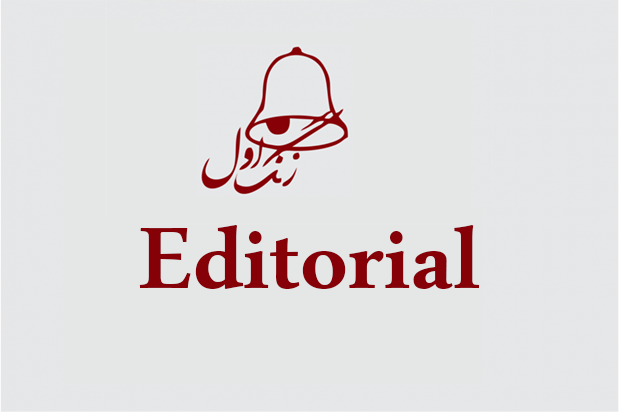The Taliban have submitted a new proposal to the government to reach a peace agreement and stop the violence. Sources say the proposal includes forming an interim government, handing over leadership to a neutral individual, and changing the constitution. According to the Taliban, the interim government should run the country for a three-year term. Further details of the offer have not yet been released.
Members of the Taliban negotiating team claim that they made an offer to Ghani and Abdullah through Khalilzad four months ago. According to Shahabuddin Delawar, a member of the Taliban negotiating team during his visit to Moscow, the main points of the proposal included the release of prisoners, the lifting of sanctions, and the Taliban to withhold the attacks provincial and major military bases. According to him, the proposal to build trust should be implemented within a period of ninety days. However, Delawar claimed that the government had not yet responded to their offer. He implicitly linked the Taliban’s attacks on military bases and provincial capitals to the government’s silence on the proposal.
Members of the government’s negotiating team said last week that the Taliban’s negotiating team in the new round of talks had suggested that the issue on the constitutional law should be clarified first. In the proposal, Taliban negotiators called for a review of the law. In contrast, government negotiators had said that a roadmap for the future should be agreed upon before discussing the constitution. It seems that this difference of opinion has not been resolved yet.
While peace talks between the Afghan government and the Taliban have stopped at the very beginning point, the group’s advance into government-controlled areas has become a serious concern. This concern extends from Afghanistan to its neighbors, regional powers and global actors. This concern is almost the same among all these countries.
The prevailing perception is that the war between the government and the Taliban will continue for a long time and that this war could defeat the peace talks. The consequences of this defeat are predicted for Afghanistan, the collapse of the government, the outbreak of civil war and the resumption of activities of terrorist groups including al-Qaeda and ISIS. The efflux of migrants from Afghanistan and the export of drugs from this country are other consequences of this war and the failure of the peace process.
According to these forecasts, Afghanistan’s neighbors, regional powers and global actors each in turn seek to determine the current and future state of the country. Pakistan has said that if Afghanistan enters a civil war, it will close its borders completely. Central Asian countries are also seeking to strengthen their common borders with Afghanistan. Last week, Iran hosted delegations from the Afghan government and the Taliban to prevent the failure of peace talks between the two sides. Russia also hosted a Taliban delegation last week, highlighting the ISIS threat and Central Asia’s vulnerability to the threat. The Russians may have discussed the situation in northern Afghanistan and Moscow’s concern about ISIS threats. The Indians have also begun their regional efforts and established direct contact with the nationalist sections of the Taliban.
The United States and NATO, which are withdrawing troops from Afghanistan, have handed over responsibility for the war to the Afghan government. They have pledged to support the Afghan government financially and with weapons to keep it afloat. At the same time, US and NATO officials are urging the Taliban to refrain from violence and to advance and enter into meaningful negotiations with the government.
Thus, the escalation of violence and the possibility of a full-scale civil war in Afghanistan has become a serious concern among neighboring countries, regional powers and global actors. At the same time, all these countries agree that there is no military solution to the Afghan issue and that the “vain war” in this country must end through dialogue. There is also consensus that the government and the Taliban will not be defeated by war and that both sides will not be able to govern Afghanistan alone. However, it is clear that both the government and the Taliban are not ready to retreat a little politically. This is rooted in the false self-confidence of the government and the Taliban, the distrust of the two sides towards each other, and the negotiation methods of the two sides in the war.
Given that the details of the Taliban’s new proposal, as well as the group’s preconditions, are not clear in the context of this proposal, it is not possible to present a positive picture of it. If the proposal is the unconditional on the release of prisoners and the lifting of sanctions, it could be a positive step. The government’s negotiating team should not speak vaguely either.
Neighboring countries, regional powers, and global actors are not expected to allow the war between the Afghan government and the Taliban to continue, given the threats they face. Iran’s hosting of government and Taliban delegations could be a starting point for facilitating negotiations between the two sides. Of course, we know this is a first step. Its success depends on its continuation and only with the intention of bringing peace to Afghanistan. Other countries can take similar initiatives. The Expanded Troika is an appropriate mechanism that brings together at least four influential actors in Afghanistan’s affairs under one umbrella. If Afghanistan’s neighbors, as well as major regional and global powers, are content to watch the situation and work together with complete neutrality to bring peace to Afghanistan, the war in Afghanistan is unlikely to end.












